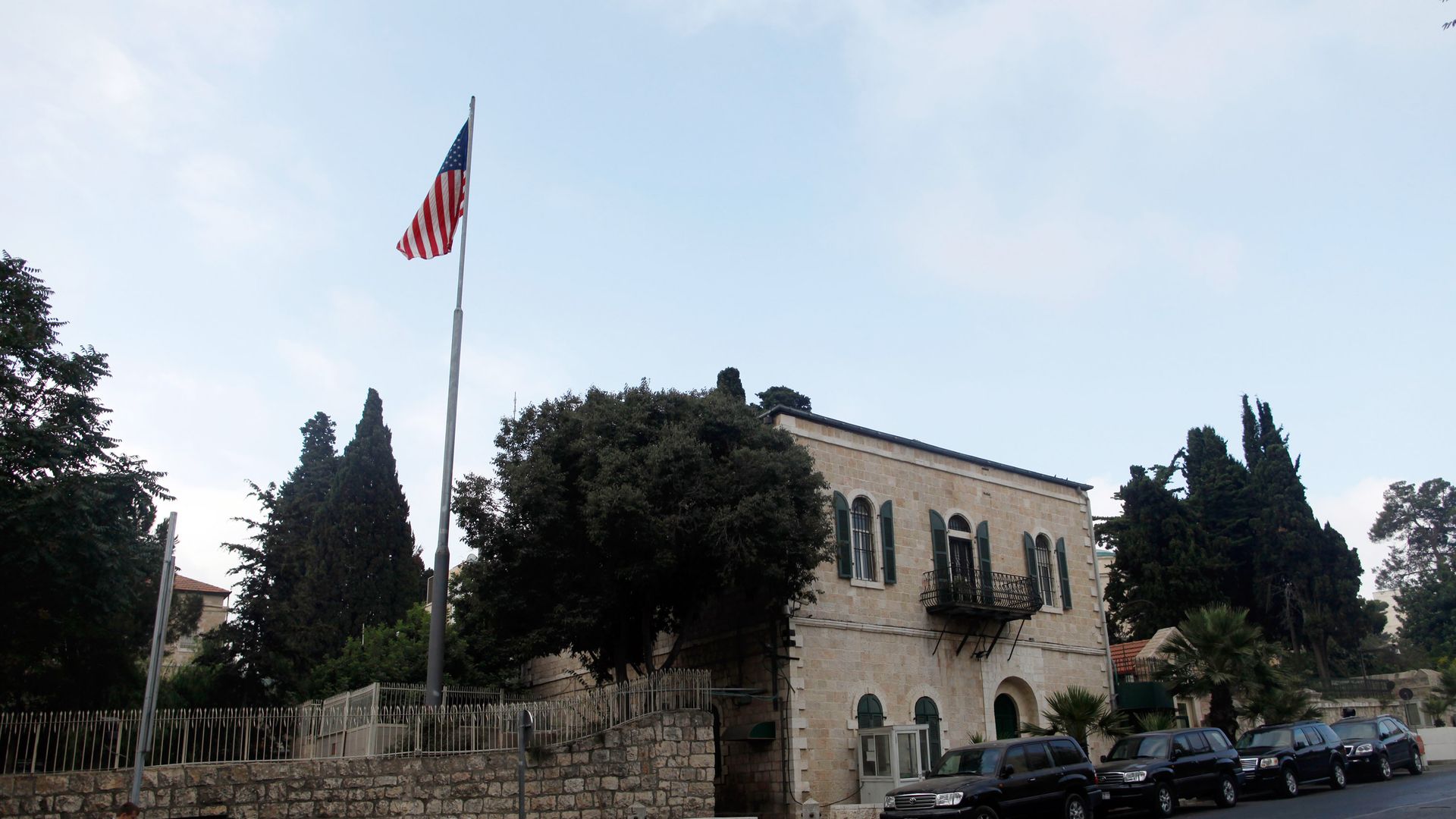U.S. puts Jerusalem consulate issue off until after Israel's election
Add Axios as your preferred source to
see more of our stories on Google.

The former U.S. Consulate. Photo: Lior Mizrahi/Getty Images
The State Department is putting plans to reopen the U.S. Consulate in Jerusalem on hold until after Israel's March 23 elections, sources familiar with the matter tell me.
Why it matters: Biden committed during the campaign to reopening the consulate, which will be a major step toward normalizing U.S.-Palestinian ties. But it also requires Israeli approval.
- The State Department recognizes that raising the issue during the campaign will further politicize the matter and make it harder to accomplish, the sources say.
The backstory: The consulate dates back to 1844 and served for 25 years as the U.S. diplomatic mission to the Palestinians before being shut down by the Trump administration and merged into the new U.S. Embassy in Jerusalem in 2019.
Driving the news: There have already been several meetings on this issue in the State Department, the sources say.
- Some department staff expressed reservations about reopening the consulate for logistical and administrative reasons after all the work that went into merging it with the embassy.
- But it very quickly became clear that the policy decision on the matter was final, and the questions were when and how it would be executed.
Behind the scenes: Discussions have since focused on two options.
- Reopening the consulate in its previous location on Agron Street in West Jerusalem.
- Shifting it to a new location in East Jerusalem. Such a move would be packed with political symbolism, signaling that the U.S. recognizes that the Palestinian capital should be in East Jerusalem. But it would encounter sharp Israeli pushback.
Worth noting: A State Department official told Axios, “We look forward to deepening our engagement with the Palestinian people and leadership. As part of that, we are reviewing our U.S. diplomatic presence on the ground to ensure that it enables us to fully conduct our complete range of activities, including engagement, public diplomacy, assistance and diplomatic reporting."
